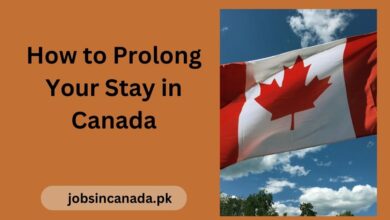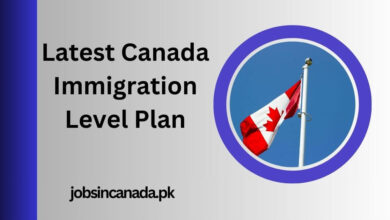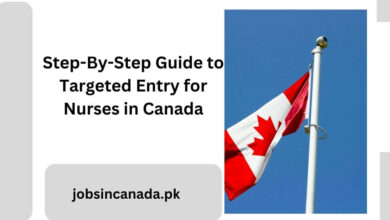Becoming a Permanent Resident of Canada in 2025

Your path to permanent residence in Canada, as well as specific guidelines and prerequisites. Regarding your future residence, do you anticipate relocating to Canada? Because of its magnificent landscapes, rich culture, and a variety of opportunities, Canada is one of the most popular immigration destinations in the world. This article will provide you with the practical advice and confidential information necessary to achieve your aspiration of permanently residing in Canada.
This manual will serve as your key to unlocking the path to Canadian permanent residency, irrespective of your nationality, whether you are from Nigeria, Ghana, or any other country.
Demystifying the Canadian Dream
With its stunning landscapes, diversified population, and growing economy, Canada has long been a top destination for immigrants from all over the world. However, a lot of prospective applicants hold back because they think they need a lot of training or professional experience to be eligible for permanent residence. Even though advanced degrees and years of work experience may be advantageous, some pathways can be pursued without either.
Check Also: Move to Canada in December with Your Family
Benefits for Becoming a Permanent Resident of Canada
- The right to reside and work in any location within Canada: No restrictions apply to PRs in terms of their ability to reside and operate in any province or territory of Canada. This grants you access to all regions and employment opportunities.
- Healthcare Accessibility: Canada’s public healthcare system is accessible to permanent residents and is free at the point of use for the majority of health services. The extent of healthcare coverage may differ by province; however, it is generally comprehensive.
- Social Services and Benefits: If you satisfy the eligibility requirements, you may participate in a variety of social programs, such as pensions, child benefits, and employment insurance (EI).
- Advantages of Education: In comparison to international students, permanent residents are entitled to reduced tuition fees and can enroll their children in public schooling, which is free until the secondary level.
- Route to Canadian Citizenship: You are eligible to petition for Canadian citizenship after residing in Canada as a permanent resident for a minimum of three years (out of five). This status provides you with a variety of benefits, such as the ability to vote and the ability to possess a Canadian passport.
- Protection under Canadian law: You are entitled to protection under Canadian law, which includes protection from discrimination and unjust treatment, as a permanent resident.
- Sponsorship of Family Members: Upon obtaining permanent residence in Canada, you are able to sponsor eligible family members, including your spouse, children, and certain other relatives.
- Access to Financial Services in Canada: You can register for credit cards, open bank accounts, and access loans with terms that are comparable to those of Canadian citizens as a permanent resident.
- Mobility: Permanent inhabitants are permitted to travel freely within and outside of Canada, provided that they maintain their status. Nevertheless, to maintain their permanent resident status, they must fulfill the residency requirements after departing Canada for protracted periods.
- Perform for the majority of employers: You are granted greater flexibility in the employment market as a permanent resident, as you are permitted to work for any employer in Canada without requiring a special work permit.
- Access to Government Services: A variety of government services, including legal assistance, unemployment benefits, and other social services, are accessible to residents.
- Stability and Security: Canada is renowned for its political stability, low crime rate, and high standard of living, which render it a secure and stable location to reside.
Age Issues
Your age is a critical factor that substantially influences your eligibility for Canadian permanent residency. Canada acknowledges the contributions that youthful individuals make to its workforce and communities. If you are under the age of 30 or 35, your likelihood of obtaining permanent residency is significantly enhanced.
This allows applicants from any English-speaking nation, including Ghana and Nigeria, to apply.
Masters or More
Although a master’s degree may be advantageous, it is not the sole route to permanent residency in Canada. Do not permit your absence of a master’s degree to prevent you from applying. There are alternative alternatives to consider. If you are employed in a field where dual degrees are prevalent, such as medicine, pharmacy, or architecture, you may have a compelling argument for permanent residency, regardless of whether you have completed a master’s chapter.
Your key to validation – ESSA
If you are a candidate without a master’s degree, it is crucial to obtain an educational credential assessment (ECA). This assessment serves to verify your international credentials and guarantee that they satisfy Canadian standards. It is advisable to have your credentials assessed, regardless of whether you possess a professional certificate or a degree.
Proficiency in English
English proficiency is an additional critical factor that could substantially enhance your likelihood of obtaining permanent residency. In addition to making every effort to prepare independently for the English Language Proficiency Test (IELTS) or the Canadian English Language Proficiency Index Program (CELPIP), it is advisable to consult with a tutor or seek advice if you are experiencing difficulty.
Provincial Nomination Programs
Pay close attention to province nomination schemes if you are in search of a compelling reason to immigrate to Canada. Various Canadian provinces and territories can recommend candidates based on the requirements of their respective labor markets through these initiatives. For example, the State nomination program in Western Australia extends invitations to applicants for positions in industries that are highly sought after, such as agriculture, education, and health care.
Express Entry System
Canada’s Express entry procedure is a critical pathway for qualified employees who are interested in permanent immigration. It employs a point system to assess your adaptability, linguistic abilities, employment history, education, and age. Receiving a high ranking in the comprehensive ranking system can significantly increase your likelihood of being invited to apply for permanent residency.
Seek Expert Guidance
Although self-education and preparation are commendable, there are instances in which it is advantageous to consult with professionals who are well-versed in the Canadian immigration process. Acquiring knowledge from experienced immigration consultants or educators will enable you to circumvent frequent complications and save a significant amount of time.
Final Thoughts
Permanent residency in Canada is a feasible objective. Even without a master’s degree or extensive work experience, it is possible to realize one’s Canadian aspirations by focusing on critical factors such as age, education, language proficiency, and provincial nomination procedures. Do not hesitate to request assistance when necessary; it can significantly enhance your likelihood of securing permanent residency in Canada.
It is important to remember that the opportunity to prosper and reside in Canada may be closer than you think. Permanent residence in Canada may necessitate dedication and diligence; however, it is feasible with the appropriate guidance and information. Do not hesitate to evaluate your options, seek advice from a professional when necessary, and initiate the process of realizing the Canadian ideal. Your future as a permanent resident of Canada may be closer than you anticipate.
Alberta Rural Immigration Program
Express entrance is replaced by the rural immigration program in Alberta. The new modifications to Bill C-19 Express Entry have caused a great deal of anxiety among many prospective immigrants regarding their chances of immigrating to Canada. Nevertheless, Alberta’s rural immigration program serves as an exceptional alternative.
This initiative will attract talented individuals to rural regions that require specialized labor. By securing employment with one of the accredited organizations included in this initiative, you may expedite your journey to permanent residency in Canada.
Why Choose Alberta’s Rural Immigration Program
The rural immigration program in Alberta offers numerous advantages over traditional Express entry programs.
- Initially, it allows designated communities to select candidates based on their own requirements and specifications, as it is community-based.
- Furthermore, the intimate nature of these communities ensures that they provide a warm and welcoming environment for newcomers.
- The program is a desirable alternative for talented employees who are interested in immigrating to Canada, as it provides a higher level of assurance and expediency in the immigration process. The timepiece is rapidly ticking. Time is also a critical factor in the implementation of any immigration policy. This opportunity may not arise again, which is why it is imperative to act promptly.
For the most recent information on visa-sponsored jobs, prospective paths, benefits, application processes, and other topics, please visit Newsnowgh.com.
Fraquality Asked Question:
-
How do you get permanent residency in Canada?
You must first apply to the province or territory where you want to live and be nominated, and. After a province or territory nominates you, you must apply to IRCC for permanent residence. An IRCC officer will then assess your application based on Canadian immigration rules.
-
Who is eligible for Canada PR?
To be eligible for a PR visa, you must meet certain requirements set by the Government of Canada, such as being at least 18 years of age, having a clean criminal record, passing a points-based immigration system, having a certain amount of money to support yourself and your family after you arrive in Canada, etc.
-
How long do you have to live in Canada to become a permanent resident?
Canada’s residency obligation for permanent residents requires a person to be physically present in Canada for at least 730 days within five years or to fall under one of several exceptions.




